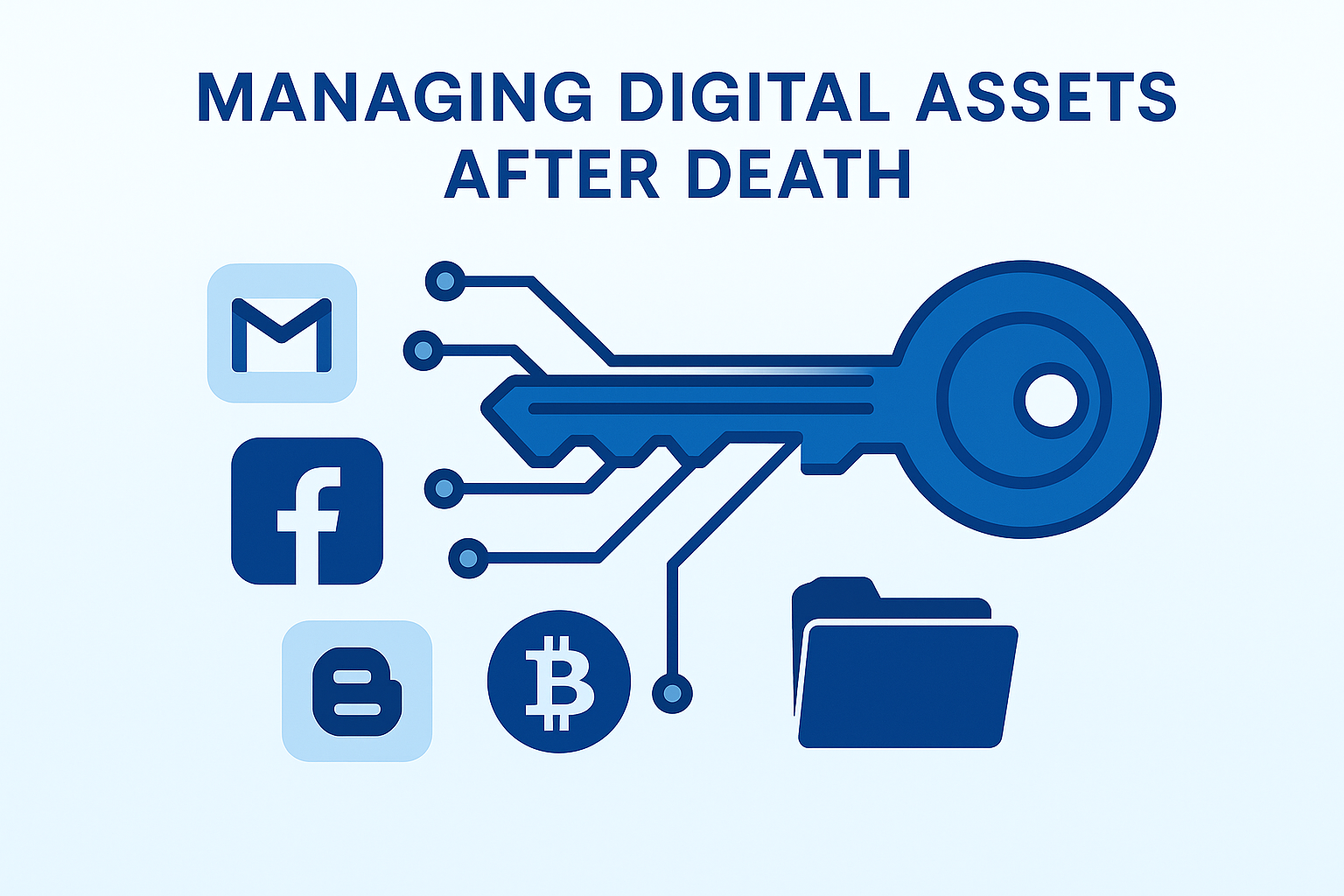How to locate, access, and protect a loved one’s online property under New York law.
The Challenge of Digital Estates
When a loved one passes away, locating their accounts and records is rarely straightforward — especially when much of their life existed online. Executors and administrators often find themselves locked out of essential accounts that contain bills, financial data, photos, or even assets of real value.
Under New York’s Revised Uniform Fiduciary Access to Digital Assets Act (RUFADAA), fiduciaries can access digital property — but only under certain conditions. Understanding those limits before acting is key to avoiding delays, privacy violations, or even the permanent loss of valuable information.
Understanding What Counts as a Digital Asset
A “digital asset” includes nearly anything stored or managed online or through a device.
This may include:
- Email, text, or social media accounts
- Cloud storage (Google Drive, Dropbox, iCloud)
- Subscription services (Amazon, Netflix, Spotify)
- Cryptocurrency or digital wallets
- Password-protected bank and investment platforms
- Business or client management tools
Each provider has its own terms for how these assets can be accessed or transferred after death — and most restrict unauthorized entry, even if the family knows the password.
What the Law Allows (and What It Doesn’t)
Under RUFADAA, access depends on how much authorization the decedent left behind:
- Online Tools – Some services (Google, Facebook, Apple) allow users to name a “legacy contact” or “inactive account manager.” These settings override all other instructions.
- Legal Documents – A properly drafted Will, Trust, or Power of Attorney can grant fiduciaries the right to access and manage digital property.
- Court Orders – If no authorization exists, a fiduciary may need to obtain a Surrogate’s Court order. Courts can authorize limited disclosure or full content access, depending on the request.
Without authorization, fiduciaries often receive only a “catalog” — limited account information, not the actual content.
Common Real-Life Scenarios
- The Locked Cloud: An executor knows important family photos are in iCloud, but Apple won’t release them without written consent or a court order.
- The Forgotten Crypto Wallet: A decedent held cryptocurrency, but no one can locate the access keys. Without documentation, the funds are likely unrecoverable.
- The Overlooked Email Account: Vital financial statements arrive by email, but without access, bills and account details go unnoticed.
Each example underscores the same reality — digital assets can be lost, delayed, or inaccessible without careful preparation.
Practical Steps for Individuals and Families
Here are simple, lawful ways to make sure digital assets can be accessed when needed:
If You’re Planning Ahead:
- Create an inventory of all online accounts and devices.
- Use each platform’s legacy contact or account manager tools.
- Add digital asset clauses in your Will, Trust, and Power of Attorney.
- Keep passwords secure but accessible (avoid listing them in the Will).
- Update your plan as technology and accounts evolve.
If You’re Administering an Estate:
- Review the decedent’s email for account notifications and subscription renewals.
- Check if the decedent designated any legacy contacts or digital executors.
- Preserve devices — don’t reset or delete them.
- Work with an attorney to determine whether a court petition is required for access.
- Document all requests made to custodians and service providers.
Avoiding Common Mistakes
Even with good intentions, fiduciaries often make these errors:
- Trying to log in directly to an account (violating service terms).
- Resetting a phone or laptop too early, erasing data.
- Ignoring crypto or digital assets because they’re “too complicated.”
- Assuming family members automatically have access — they don’t.
Early legal advice can prevent these mistakes and save weeks or months of unnecessary court delays.
What This Means for You
Modern estate planning isn’t just about houses and bank accounts — it’s about the digital footprints we all leave behind. Whether you’re planning your own estate or administering someone else’s, it’s crucial to include online property in your overall plan.
At Sverdlov Law, PLLC, we help clients design estate plans that address both traditional and digital assets, ensuring fiduciaries have the authority and tools they need when the time comes.


